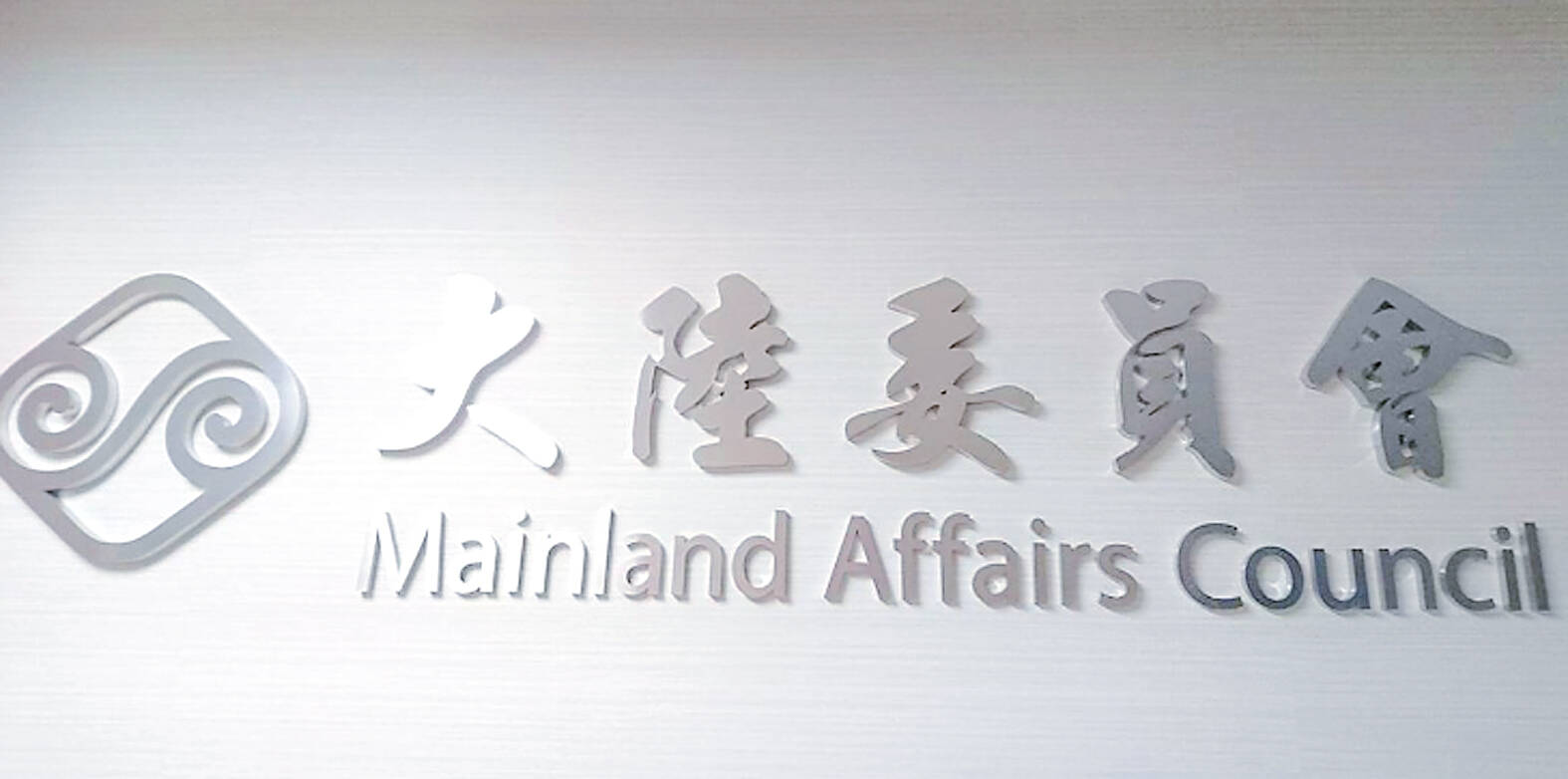Most businesspeople and experts do not see a need to revive plans for a controversial cross-strait service trade agreement with China, Mainland Affairs Council spokesman Jan Jyh-horng (詹志宏) said on Thursday.
Debate on the issue reignited following news reports that a draft policy white paper by Taiwan People’s Party Chairman Ko Wen-je (柯文哲), the party’s presidential candidate, had advocated restarting negotiations with Beijing on the pact.
The agreement, which was originally signed by China and the then-Chinese Nationalist Party (KMT) government in 2013, aimed to liberalize trade and investment rules between the two economies in service industries, including finance, tourism, healthcare, telecoms and publishing.

Photo: Chung Li-hua, Taipei Times
The KMT’s attempt to hastily ratify the pact in the legislature set off the student-led Sunflower movement in 2014, which ultimately led to the agreement being shelved.
The administration of then-president Ma Ying-jeou’s (馬英九) bid to integrate the Taiwanese economy with China played into Beijing’s strategy of locking Taiwan into its orbit, Jan said, adding that the project has lost all relevance due to the significant changes that have taken place in the decade following its inception.
The vast majority of entrepreneurs and academics do not see a need for reviving the agreement, he said.
Taiwan has always been willing to talk about trade with China, but the problem is Beijing has steadfastly refused to utilize the existing mechanisms for dialogue to pressure the nation into making concessions that comprise sovereignty, he added.
Separately, Democratic Progressive Party caucus whip Ker Chien-ming (柯建銘) said that speaking of restarting the agreement amid rising tensions in the Taiwan Strait and international economic and political crises is “tantamount to ... opening the gates to the enemy.”
In response to the news reports, Ko last week said that he had not yet formally proposed renegotiating the agreement.
He said that while he had always opposed the KMT’s “black box” tactics to force the pact through the legislature, he was not opposed to the agreement itself, as long as it was reviewed via democratic means.
Additional reporting by Kan Meng-lin

The High Prosecutors’ Office yesterday withdrew an appeal against the acquittal of a former bank manager 22 years after his death, marking Taiwan’s first instance of prosecutors rendering posthumous justice to a wrongfully convicted defendant. Chu Ching-en (諸慶恩) — formerly a manager at the Taipei branch of BNP Paribas — was in 1999 accused by Weng Mao-chung (翁茂鍾), then-president of Chia Her Industrial Co, of forging a request for a fixed deposit of US$10 million by I-Hwa Industrial Co, a subsidiary of Chia Her, which was used as collateral. Chu was ruled not guilty in the first trial, but was found guilty

‘DENIAL DEFENSE’: The US would increase its military presence with uncrewed ships, and submarines, while boosting defense in the Indo-Pacific, a Pete Hegseth memo said The US is reorienting its military strategy to focus primarily on deterring a potential Chinese invasion of Taiwan, a memo signed by US Secretary of Defense Pete Hegseth showed. The memo also called on Taiwan to increase its defense spending. The document, known as the “Interim National Defense Strategic Guidance,” was distributed this month and detailed the national defense plans of US President Donald Trump’s administration, an article in the Washington Post said on Saturday. It outlines how the US can prepare for a potential war with China and defend itself from threats in the “near abroad,” including Greenland and the Panama

DEADLOCK: As the commission is unable to forum a quorum to review license renewal applications, the channel operators are not at fault and can air past their license date The National Communications Commission (NCC) yesterday said that the Public Television Service (PTS) and 36 other television and radio broadcasters could continue airing, despite the commission’s inability to meet a quorum to review their license renewal applications. The licenses of PTS and the other channels are set to expire between this month and June. The National Communications Commission Organization Act (國家通訊傳播委員會組織法) stipulates that the commission must meet the mandated quorum of four to hold a valid meeting. The seven-member commission currently has only three commissioners. “We have informed the channel operators of the progress we have made in reviewing their license renewal applications, and

A wild live dugong was found in Taiwan for the first time in 88 years, after it was accidentally caught by a fisher’s net on Tuesday in Yilan County’s Fenniaolin (粉鳥林). This is the first sighting of the species in Taiwan since 1937, having already been considered “extinct” in the country and considered as “vulnerable” by the International Union for Conservation of Nature. A fisher surnamed Chen (陳) went to Fenniaolin to collect the fish in his netting, but instead caught a 3m long, 500kg dugong. The fisher released the animal back into the wild, not realizing it was an endangered species at